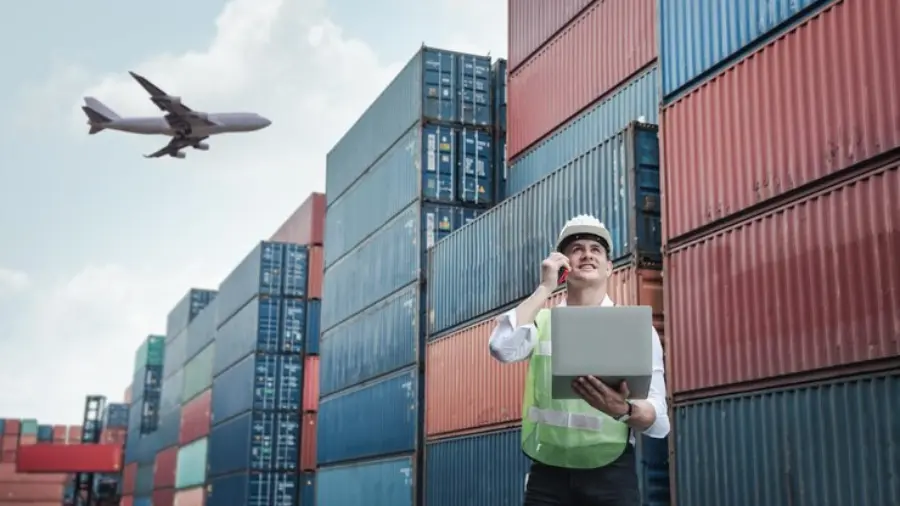One of the most common questions businesses face in international trade is: Can a freight forwarder be the Exporter of Record (EOR)? While these two roles often work seamlessly together, they are not always interchangeable. Understanding the differences between a freight forwarder and an exporter of record is critical for ensuring compliance and efficiency in the export process.
In this blog, we will explore the key distinctions between the Freight forwarder vs. exporter of record, delve into their respective responsibilities in the export process, and answer the important question: Can a freight forwarder act as the Exporter of Record?
Freight Forwarder vs. Exporter of Record
Freight forwarders and Exporters of Record (EOR) play distinct but complementary roles in international trade. For companies looking to optimize import and export operations, it’s vital to understand how each works — and whether a freight forwarder can also act as the EOR.
Who is The Freight Forwarder?
A freight forwarder is an intermediary that manages the movement of goods on behalf of businesses. They don’t own the cargo, but they coordinate logistics and documentation to ensure goods move smoothly across borders.
Typical freight forwarder responsibilities include:
-
Document management: commercial invoices, bills of lading, and customs forms
-
Carrier selection: choosing the best air, sea, rail, or road transport
-
Freight negotiations: securing competitive shipping rates
-
Shipment tracking: monitoring goods during storage, transit, and delivery
-
Insurance: arranging cargo insurance and filing claims if goods are lost or damaged
In short, freight forwarders facilitate logistics but don’t take on legal responsibility for the export itself.
Who is The Exporter of Record?
An Exporter of Record is the legal entity responsible for ensuring that goods leave a country in compliance with local and international laws. Unlike freight forwarders, the EOR carries legal accountability for the export.
Typical EOR responsibilities include:
-
Export clearance: securing permits and filing export declarations
-
Product valuation & classification: assigning tariff codes and declaring accurate values
-
Regulatory compliance: ensuring shipments meet export control laws and sanctions rules
-
Expense management: handling unexpected costs like customs fees or taxes
-
Record keeping: maintaining invoices, declarations, and permits for audits
The EOR is legally liable if anything goes wrong in the export process
Key Differences Between Freight Forwarder and Exporter of Record
Understanding the differences between a freight forwarder and an exporter of Record is essential for businesses involved in global logistics and export compliance, as each plays a distinct role in the export process. Below is a comparison table highlighting the freight forwarder Vs. exporter of record:
| Aspect | Freight Forwarder | Exporter of Record (EOR) |
|---|---|---|
| Primary Role | Manages logistics and transportation | Ensures full legal export compliance |
| Responsibility | Coordinates shipments, optimizes routes, and books carriers | Takes legal responsibility for export documentation and permits |
| Legal Compliance | Not legally accountable for export laws | Fully responsible for compliance with trade laws and export controls |
| Focus Area | Transportation, scheduling, and cargo handling | Export licenses, customs declarations, and sanctions compliance |
| Expertise | Logistics, routing, customs brokerage | International trade law, compliance, export regulations |
Can a Freight Forwarder Act as an Exporter of Record?
In most cases, freight forwarders cannot act as the Exporter of Record (EOR). The EOR carries the legal responsibility for compliance, permits, and customs filings, while freight forwarding focuses on logistics and transportation.
Some providers now offer combined solutions, acting as both freight forwarder and EOR to simplify compliance and shipping under one service. However, it’s important to note that the shipper and EOR are not always the same — the shipper moves the goods, while the EOR ensures the export is legally authorized.
Streamline Your Export Operations with IOR Africa’s Expert Services
Export compliance doesn’t have to be complicated. By relying on IOR Africa’s Exporter of Record services, your business can streamline operations, reduce risk, and unlock new opportunities in global markets.
Talk to Our Experts Now
Frequently Asked Questions
Who Can Be an EOR Exporter of Record?
The EOR is often the owner of the goods, but it can also be a licensed third-party service provider (such as a customs broker or logistics company) appointed by the owner. The key is that the EOR must have the necessary knowledge and authority to meet all legal requirements involved in exporting goods.
Can the freight forwarder issue a bill of lading?
Yes, a freight forwarder can issue a Forwarder’s Bill of Lading (FBL). This document confirms receipt of cargo from the shipper and acts as a contract between the shipper and the forwarder. Unlike the Master Bill of Lading issued by the carrier, the FBL is especially useful in consolidated shipments and multi-party transactions, ensuring legal compliance and protecting the interests of all parties involved.

